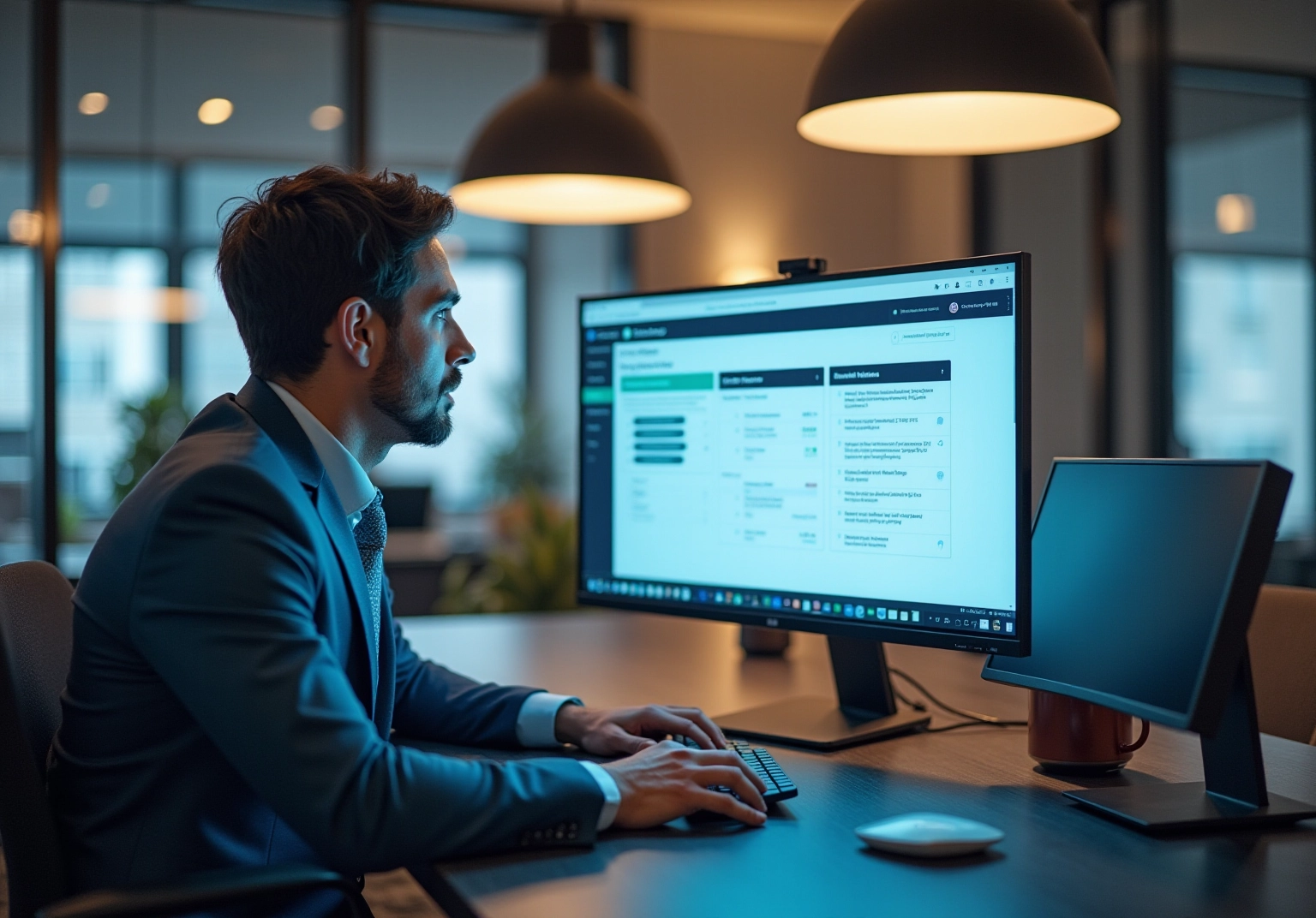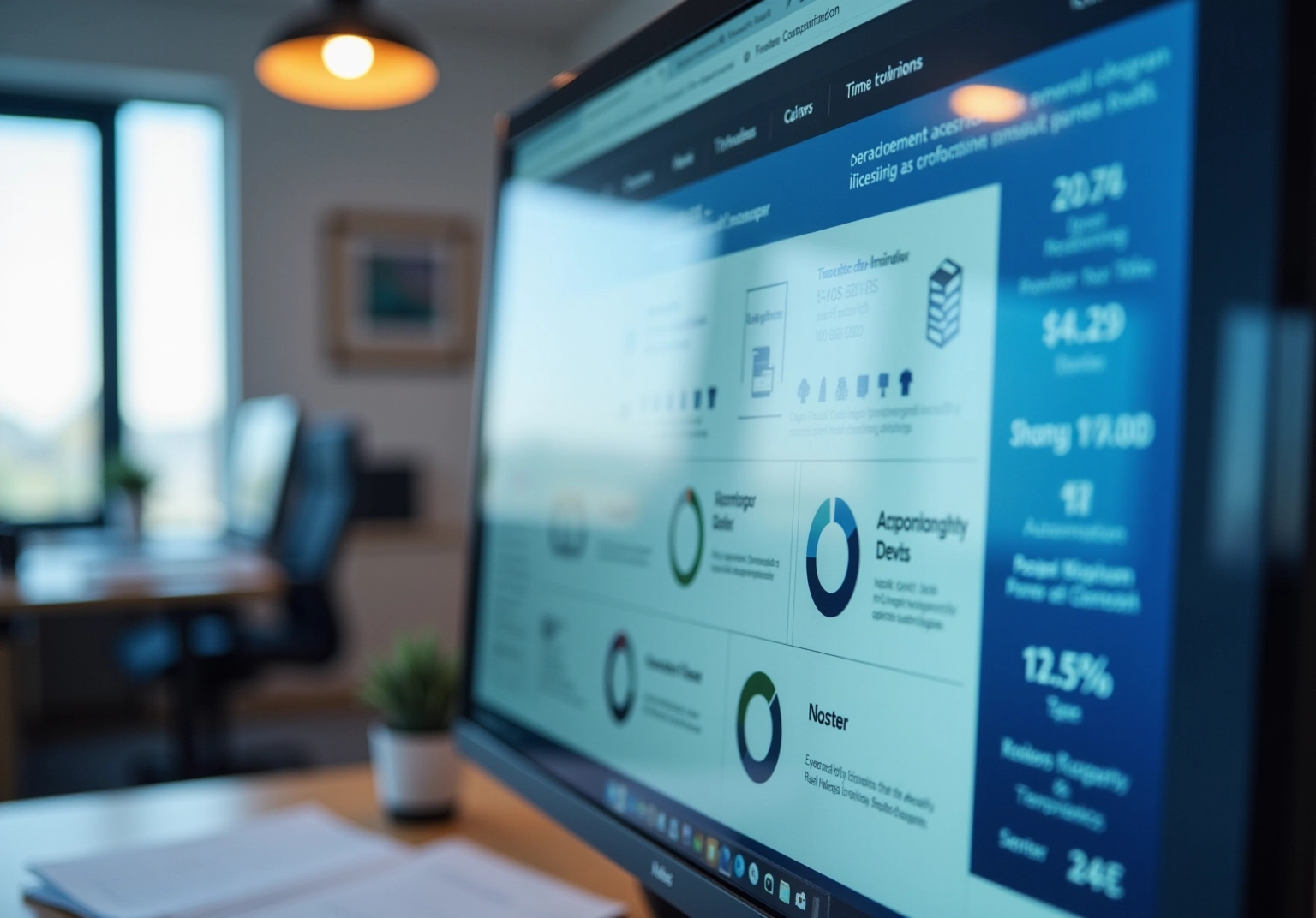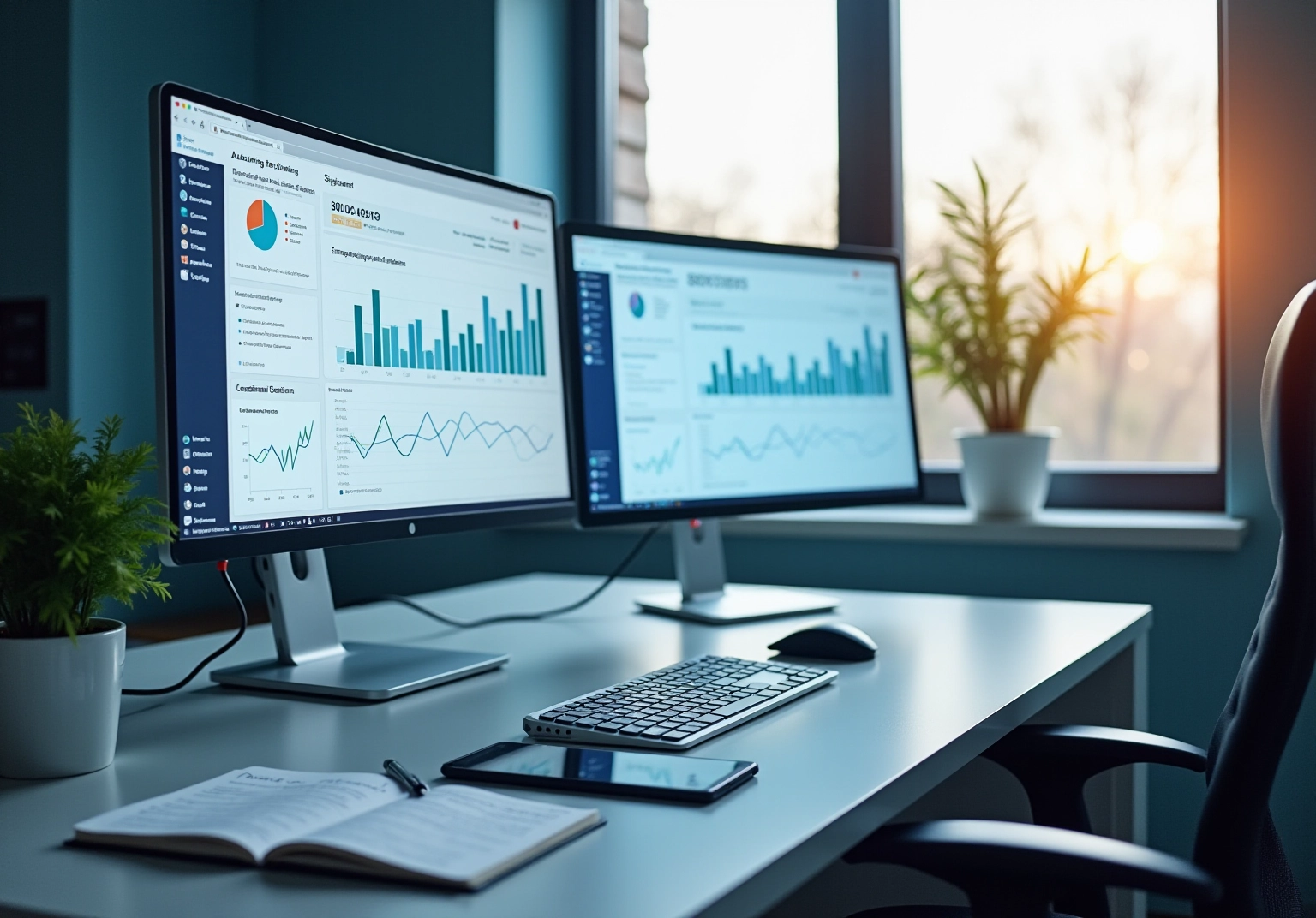Overview
The article identifies seven effective tools for tax automation in accounting firms, underscoring their pivotal roles in enhancing efficiency, compliance, and client interactions. These tools, including Glasscubes and Fonoa, showcase significant time savings and improved operational effectiveness. Users have reported notable reductions in manual tasks and increases in customer response rates, ultimately transforming accounting processes. By leveraging these tools, accounting firms can navigate the complexities of tax management with greater ease and effectiveness.
Key Highlights:
- Glasscubes provides a secure, GDPR-compliant portal for financial professionals, facilitating efficient information gathering and communication.
- Users of Glasscubes reported saving up to 288 hours in a single tax season, with automated reminders increasing customer response rates by 40%.
- Fonoa offers real-time tax compliance solutions, reducing time spent on tax-related tasks by 40% and enhancing operational efficiency.
- FD Intelligence automates repetitive accounting tasks, allowing accountants to focus on higher-value activities, improving productivity.
- Xceptor streamlines financial processes through data automation, enhancing customer interactions and ensuring compliance with regulations.
- SafeSend simplifies document collection for UK financial professionals, leading to quicker customer responses and improved transparency.
- AI-driven insights in accounting enhance decision-making through real-time data analysis, resulting in significant time savings during peak tax periods.
- Blockchain technology enhances security and transparency in financial transactions, reducing fraud by 70% and improving compliance.
- Robotic Process Automation (RPA) minimises manual tasks in accounting, leading to a 30% increase in timely payroll submissions.
- All-in-one platforms consolidate multiple accounting functions, improving efficiency and service delivery, with firms achieving significant time savings.
Introduction
The landscape of accounting is rapidly evolving, with technology paving the way for enhanced efficiency and accuracy in tax processes. As firms grapple with increasing demands for timely compliance and effective client communication, the adoption of tax automation tools has become essential. This article explores seven innovative solutions that promise to transform the operations of accounting firms, streamlining workflows and significantly reducing manual tasks. But with a myriad of options available, how can firms discern which tools will truly elevate their practises and meet the challenges of modern financial management?
Glasscubes: Streamline Client Communication and Information Gathering
The innovative platform revolutionises communication for financial professionals by providing a secure, GDPR-compliant portal for users. This tool facilitates the efficient gathering of personal tax, audit, and payroll information while addressing common pain points such as the risk of misplaced information and the limitations of traditional email communication. Key features, such as tax automation with automated reminders and real-time reporting, drastically reduce the time accountants spend on follow-ups.
Companies using the platform have reported saving up to 288 hours in one tax season, showcasing its considerable effect on tax automation, which improves customer interaction and optimises workflows. The implementation of automated reminders has proven especially effective, with businesses experiencing a 40% increase in customer response rates and a 50% reduction in response times.
By centralising customer interactions and implementing tax automation for routine tasks, the platform not only enhances operational efficiency but also nurtures stronger connexions between financial professionals and their customers. Additionally, the platform ensures that all correspondence is contained within each audit request, eliminating the risk of misplaced information and enhancing overall communication efficiency.
To maximise the benefits of Glasscubes, professionals should leverage its features to create a more organised and responsive client engagement strategy.
Fonoa: Real-Time Tax Compliance and Automation Solutions
Fonoa emerges as a leading global platform for tax automation, providing real-time compliance solutions that empower financial professionals to validate tax IDs, calculate taxes, and generate invoices effortlessly. By implementing tax automation for these crucial processes, Fonoa significantly mitigates the risk of errors and enhances operational efficiency, allowing companies to swiftly adapt to evolving tax regulations.
The platform facilitates hundreds of millions of transactions worldwide, highlighting its substantial impact on operational effectiveness. Its user-friendly interface enables accountants to redirect their focus from laborious manual compliance checks to more strategic initiatives, ultimately boosting productivity.
Case studies reveal that organisations leveraging Fonoa’s solutions have experienced remarkable improvements in compliance management, with many reporting a 40% reduction in time spent on tax-related tasks through tax automation. This transformation not only streamlines workflows but also equips organisations to better satisfy client demands for accuracy and timeliness in financial reporting.
Moreover, with 61% of compliance officers expecting increased investment in compliance processes over the next two years, the significance of solutions like Fonoa is more crucial than ever.

FD Intelligence: Intelligent Automation for Enhanced Productivity
FD Intelligence revolutionises productivity in accounting businesses through its intelligent tax automation solutions. By implementing tax automation for repetitive tasks—such as data entry and report generation—accountants can redirect their focus to higher-value activities. The platform’s seamless integration with existing systems not only facilitates a smooth transition but also maximises the return on investment for firms embracing tax automation technologies.
Moreover, the user portal offers an onboarding experience that requires no training, accompanied by tailored setup support. This means accounting teams can quickly optimise their workflows through secure file sharing, automated reminders, and enhanced customer interaction, significantly boosting productivity with tax automation.
Why settle for the status quo when you can elevate your accounting processes with FD Intelligence?

Xceptor: Data Automation Software for Streamlined Finance
This platform stands as a powerful solution that streamlines financial processes through tax automation, enabling the automation of information collection, approvals, and file sharing. It significantly aids financial professionals by enhancing customer interactions through features such as:
- Real-time reporting
- Automated reminders
- Tax automation in a secure, white-labelled portal for users
By centralising communication and ensuring compliance with ISO27001 and GDPR, the company elevates the accuracy and efficiency of financial operations. Furthermore, the dedicated customer success manager empowers financial professionals to maximise the platform’s value, allowing them to focus on delivering exceptional value to their customers.

SafeSend: Innovative Tax and Accounting Automation Solutions
This innovative platform is specifically designed for UK financial professionals, utilising tax automation to manage the entire process from document collection to delivery. By simplifying essential processes such as gathering personal tax, audit/accounts, and payroll information, it empowers accountants to minimise manual tasks and significantly enhance customer satisfaction.
As highlighted by Steve, an audit manager at MGI, the transition to Glasscubes has transformed their audit process by providing a centralised workspace where customers and auditors can effortlessly access and manage information. This shift has led to quicker responses from customers and improved transparency, as they can log in to view outstanding inquiries and necessary documents without the hassle of lengthy email exchanges.
Key features include:
- Automatic reminders for users to upload information
- The ability to monitor outstanding requests
These features have further improved communication. By integrating seamlessly with existing accounting software, this platform boosts workflow efficiency and ensures timely compliance with tax regulations through tax automation.
Users like Sophie Montgomery from TaxAssist Accountants have reported saving an impressive 288 hours in a single tax season, demonstrating the platform’s effectiveness in enhancing user engagement. Embracing technology through innovative platforms is crucial for financial professionals aiming to provide proactive and strategic guidance to their clients, ultimately fostering stronger advisor-customer relationships.
AI-Driven Insights: Transforming Accounting Operations
AI-driven insights are transforming accounting operations by delivering real-time data analysis and predictive analytics. These advanced tools empower accountants to make informed decisions based on precise data, thereby enhancing strategic planning and operational efficiency.
Many companies, prior to adopting this platform, faced significant challenges in managing information inquiries, often relying on lengthy email threads that led to lost data and repeated requests. By implementing tax automation to automate data analysis and streamline communication, the platform effectively addresses these inefficiencies, allowing businesses to focus on providing value-added services to their customers.
Notably, companies utilising this platform for tax automation have reported:
- An average savings of 288 hours during peak tax periods
- A 40% increase in customer response rates
- A 50% reduction in response times
This illustrates how the platform facilitates more effective communication and engagement. As AI technology continues to evolve, its integration into accounting practises not only simplifies processes but also fosters a proactive approach to financial management, enabling organisations to anticipate client needs and adapt strategies accordingly.
The user-friendly interface of Glasscubes, which requires no training, further enhances its appeal, positioning it as an invaluable tool for accounting managers.
Blockchain: Ensuring Secure and Compliant Financial Transactions
Blockchain technology is revolutionising the accounting landscape by offering a secure and transparent framework for recording financial transactions. Its decentralised architecture guarantees that all transactions are immutable and verifiable, significantly mitigating the risk of fraud. In fact, credit institutions using blockchain have reported a remarkable 70% reduction in fraudulent activities. This enhanced security not only fosters trust among stakeholders but also streamlines compliance with regulatory standards, as blockchain’s transparency feature may foster a more robust regulatory environment by providing real time, immutable transaction records.
Accountants can harness blockchain to optimise audit processes and elevate the accuracy of financial reporting. By providing a tamper-proof ledger, blockchain simplifies the verification of transactions, thereby enhancing operational efficiency. Furthermore, companies employing blockchain technology have witnessed a 50% rise in transaction speed, facilitating faster financial reconciliations and reporting.
The benefits of blockchain extend beyond security; they also include improved transparency and traceability in financial transactions. This transparency is crucial for regulatory compliance, as it allows for real time auditing and monitoring of transactions. As the financial sector increasingly adopts blockchain solutions, the potential for enhanced operational integrity and reduced costs becomes evident, making it an invaluable tool for modern accountants. Furthermore, a Deloitte survey indicates that 70% of financial executives expect to invest heavily in blockchain development over the next two years, highlighting the growing recognition of its value in the accounting sector. However, companies should also consider the challenges of integration, such as high operational costs and the need for dedicated onboarding assistance, to ensure successful adoption.

Automation Tools: Reducing Manual Tasks in Accounting
Tax automation tools are indispensable for minimising manual tasks in accounting, allowing companies to optimise workflows and enhance accuracy. Robotic Process Automation (RPA) proficiently handles repetitive tasks such as data entry and invoice processing, empowering accountants to concentrate on strategic initiatives. By leveraging these tools, including a secure and user-friendly payroll management system, companies can markedly improve operational efficiency and reduce the risk of human error. This platform streamlines the request and transfer of payroll information, ensuring consistency and timeliness in processing client data, which in turn elevates client satisfaction.
For example, organisations utilising Glasscubes have reported a 30% increase in timely payroll submissions, underscoring the system’s impact on service delivery. Integrating payroll management into tax automation strategies enables accounting firms to conserve valuable time and enhance overall service delivery.

Real-Time Compliance Monitoring: Adapting to Regulatory Changes
Real-time compliance monitoring tools empower accountants to remain abreast of regulatory changes and ensure adherence to established standards. By enhancing this process with automated reminders, companies can encourage prompt responses from customers, coupled with real-time visibility across all interactions. Such features enable organisations to adapt swiftly to new regulations, thereby mitigating risks and bolstering their reputation for reliability and accuracy. Through the implementation of Glasscubes, financial professionals can streamline their customer engagement, ensuring that compliance monitoring is not only efficient but also effective.

All-in-One Platforms: The Future of Tax and Accounting Automation
All-in-one platforms are revolutionising tax automation and accounting by offering integrated solutions that streamline various functions, from bookkeeping to compliance management. These solutions consolidate multiple software applications into a single platform, simplifying workflows and enhancing data accuracy. Companies employing integrated accounting solutions have reported notable enhancements in efficiency, with some achieving significant time savings through tax automation, saving as much as 288 hours in one tax season. This efficiency leads to decreased operational expenses and improved service for customers, as accountants can focus on higher-value tasks rather than administrative burdens.
Furthermore, 86% of companies have adopted cloud accounting as their primary technological solution, emphasising the shift towards tax automation through integrated platforms that facilitate real-time collaboration and data access. Industry specialists assert that the adoption of all-in-one solutions boosts productivity and enhances customer satisfaction by ensuring timely and accurate responses to inquiries. The impact of these platforms is evident, with firms experiencing a 40% increase in client response rates and a 50% reduction in response times, demonstrating their critical role in modern accounting practises.

Conclusion
The integration of tax automation tools within accounting firms is not merely a trend; it signifies a fundamental shift towards enhanced efficiency and accuracy in financial management. By leveraging innovative solutions such as Glasscubes, Fonoa, FD Intelligence, and others, firms can significantly streamline their workflows, reduce manual tasks, and improve client communication. These tools not only facilitate compliance with ever-evolving regulations but also empower accountants to concentrate on higher-value activities that cultivate stronger relationships with clients.
Throughout this article, key insights reveal the transformative power of these automation tools. From centralised communication platforms that save hundreds of hours during tax season to AI-driven insights that enhance decision-making processes, the benefits are evident. The case studies presented illustrate substantial time savings and increased productivity, while the emphasis on real-time compliance monitoring underscores the necessity of staying ahead in a rapidly changing regulatory landscape.
As the accounting industry continues to adopt these advanced technologies, the potential for improved operational integrity and customer satisfaction becomes increasingly apparent. Embracing tax automation is not just about keeping pace with change; it is a proactive strategy that positions firms for future success. By investing in these tools, accounting professionals can ensure they remain competitive, responsive, and capable of delivering exceptional value to their clients.
